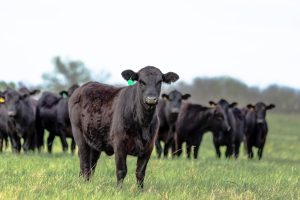The mood of Australia’s beef industry has darkened recently as the prospect of new US import tariffs on Australian beef exports looks increasingly likely.
The Trump administration is expected to roll out new widespread tariff measures on April 2, with Australia not expected to win any concession on potentially damaging trade measures on key exports. In the case of Australian beef, the protectionist instinct from the president is likely to override any concerns about a shortfall US domestic supply, which is putting upward pressure on local prices.
Economists believe tariffs of between 2% and 8% may be coming in the latest round, a mild level of tariffs compared to those imposed on neighbours closer to the US.
Local analyst Matt Dalgleish told industry website beefcentral.com thatAustralia’s export trade may not be impacted too much as expected levels, but upside risk for higher tariffs could be damaging.
“A tariff level of 2-10pc would likely have little real impact, but anything 15pc or higher on beef would start to make a real impression on trade,” he told the website.
American outrage at trade arrangements has grown louder, thanks to an emboldened lobby group sector now seizing the opportunity to press their case for better terms.
America’s Meat Institute – the peak body for American animal protein sectors – has taken aim at a 20-plus year old free trade agreement between the US and Australia, citing overly rigorous biosecurity limits that have curtailed American exports.
“Australia continues to restrict access for chilled/frozen US beef, due to persistent, unjustified bovine spongiform encephalopathy (BSE)-related bans, and largely limits imports of US pork to product destined for further processing,” the organisation wrote in a letter to the US Trade Representative in late 2024.
Other sectors in the firing line include table grapes and wine exports.








